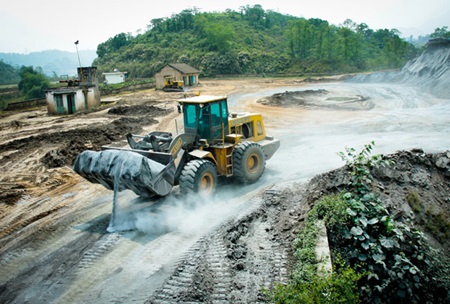A representative from PanNature suggested clearly defining the non-profit status of science and technology organizations to facilitate research, technology transfer, and application. This clarity would also enhance international collaboration and attract funding.

Resources sector needs oversight
A demand to improve management of natural resources to stop its depletion and degradation was made at a seminar on boosting transparency in natural resources management, in Ha Noi yesterday.

Dr Tran Dinh Thien, Director of the Viet Nam Institute of Economics, pointed to the fact that Viet Nam had maintained for a long time that the exploitation of natural resources was a development priority, while failing to pay due attention to modernising the processing industry.
Therefore, the country’s export-based economic growth was in fact a model relying on exporting raw natural resources, he said.
Statistics in a government report in August 2012 showed that from 2005 to 2008, the extractive industry ranked fifth among 18 industries and sectors in terms of total investment, but stood at the eighth position in terms of economic efficiency.
The mining industry also ranked only 11th in terms of job creation. These figures reflected the low economic efficiency of the sector as the consequence of a lack of investment in processing technology.
Participants at the seminar also agreed on the necessity to fight corruption and strengthen the transparency in managing natural resources.
Researcher Dang Hung Vo said that transparency was a factor that contradicted the corruption issue.
Strict enforcement of laws on transparency in natural resources management was always an index reflecting the determination of local authorities to fight corruption, he said.
Vo said that Viet Nam’s participation in the Extractive Industries Transparency Initiative – an international organisation that has developed a standard that assesses the levels of transparency around oil, gas and mineral resources of nations – was in line with the country’s short-term and long-term policies.
The seminar was organised by the People and Nature Reconciliation, a Vietnamese not-for-profit organisation which was established in 2004 with an aim to protect and conserve diversity of life and improve human well-being in Viet Nam.



